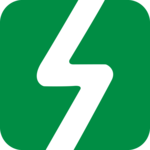I Bootstrapped A $12K Trend-Spotting Tool [From Estonia]
Hello! Who are you and what business did you start?
Hey, I’m Mike from Italy. I run 9 SaaS (software-as-a-service) products currently, one of which is Treendly, where we discover rising trends you haven’t heard of. Overall my business is doing ~$8k/m, of which Treendly does around $1k/m.
I run my SaaS products with no team, no investments of any kind, and even no CS degree. In fact, my background is in music. Jazz, in particular.
It can seem like you need two or three lives to run so many products in parallel, and while it does require a lot of time, I let my products compete for my attention. Usually, the ones that make more revenue get more attention from me.
I also have a personal dashboard that I built when I meticulously track how I spend my time. Usually, I don't like to spend more than 30% of my day working.
Secondly, you need to decide what to bring with you and what to leave behind. I focus on my strength, which is data collection, and I focus on going to market as fast as possible. So, I don't care about writing tests for my code, I don't care...

Download the report and join our email newsletter packed with business ideas and money-making opportunities, backed by real-life case studies.

Download the report and join our email newsletter packed with business ideas and money-making opportunities, backed by real-life case studies.

Download the report and join our email newsletter packed with business ideas and money-making opportunities, backed by real-life case studies.

Download the report and join our email newsletter packed with business ideas and money-making opportunities, backed by real-life case studies.

Download the report and join our email newsletter packed with business ideas and money-making opportunities, backed by real-life case studies.

Download the report and join our email newsletter packed with business ideas and money-making opportunities, backed by real-life case studies.

Download the report and join our email newsletter packed with business ideas and money-making opportunities, backed by real-life case studies.

Download the report and join our email newsletter packed with business ideas and money-making opportunities, backed by real-life case studies.















